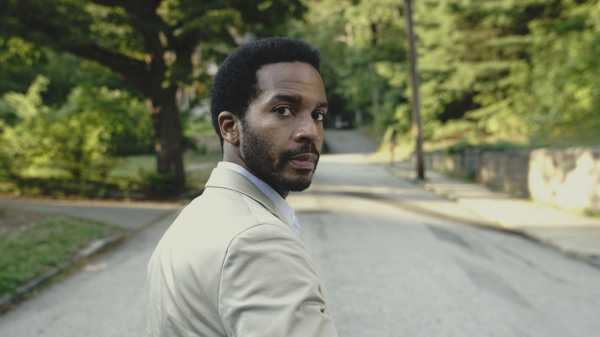
Advertised as “a psychological-horror series set in the Stephen King multiverse,” the ten-part series “Castle Rock” (Hulu) stars a town that may be a hellmouth, or, at the very least, a suitably mundane home for motiveless evil. Castle Rock, Maine, is the fictional town that figured in King’s “The Dead Zone,” “Needful Things,” and dozens of other durable freakouts. One “Castle Rock” character fingers a yellowed newspaper article headlined with a reference to a “rabid dog” that must be Cujo. Another character pages through “Lord of the Flies,” the novel from which the town takes its name. The thing is thick with callbacks, name checks, shoutouts to idols, and Easter eggs that disappear up their own hiding spots. The spirit of allusion extends to the casting: Sissy Spacek, forty-two years after “Carrie,” jitters through the role of a widow afflicted with dementia.
Some of the references service the sort of fan ardent enough to greet the word “multiverse” as an enticement rather than a bad omen. Some seem to reheat the novelist’s most persistent themes, as if using their warmth to incubate this new tale of good and evil. A few are playful even in their corniness—for instance, a real-estate agent’s newspaper ad invokes the author in its invitation to “live like a king!” The playfulness is much appreciated amid “Castle Rock” ’s cumbersome solemnity.
Its first scene, set in 1991, introduces Henry Deaver (played in the present day by André Holland). As an eleven-year-old, Henry was involved in—and excoriated by his neighbors for—a calamity. His father, the local preacher, died of injuries incurred when Henry, it is alleged, shoved him to a bad fall. Meanwhile, the boy went missing for many winter days but turned up unscathed, without even a case of mild hypothermia. Henry remembers nothing of the incident—or, indeed, anything of his life before it.
The second scene, set in 2018, introduces Dale Lacy (Terry O’Quinn), who, on the cusp of retiring as the warden of a correctional facility, which once was Shawshank State Prison, kills himself in spectacular fashion, using a noose and a Lincoln Town Car accelerated into a lake. The suicide may be linked somehow to an off-the-books prisoner caged in an empty water tank in a disused cell block. Discovered by a idealistic guard, during the tenure of a new warden, the kid (played by Bill Skarsgård, of “It”) emerged pallid to the point of translucence, with an Edwardian prettiness to his mouth and an alien intelligence in his eyes.
In 2018, Henry lives in Texas and is a criminal-defense lawyer who specializes in capital cases with a spectacular lack of success. He is introduced attempting an Atticus Finch–type stemwinder at the sentencing of a elderly woman convicted of killing her abusive husband. A subsequent scene depicts the bungling of her lethal injection. “My clients are all dead,” Deaver, who is so cursed that some of them can’t even die correctly, says. While melodramatically thirsting for redemption, Henry receives a tip that the mysterious prisoner spoke his name, and he ventures back to Maine. In this way, “Castle Rock” makes for a conceptual companion piece to “Sharp Objects,” another series about an outcast going home to ask nosy questions and confront personal demons, but the demons here might very well be literal. The prisoner may be the devil. The church steeple is shot to evoke a honed dagger.
Henry’s narrative and the prisoner’s intersect with half a dozen other tales tinged with guilt, hate, and supernatural mystery. Four episodes in, the plenitude of incident creates an effect more like dilution than density, and it’s hard to see the trees for the forest of allusion. “Castle Rock” sometimes feels like a grab bag of rehashed tropes. It is freshest when its paranormality flickers with metaphors for a real world haunted by prison systems and spotted with dying small towns and plagued by sensations of outsiderness. I’m intrigued by how the series handles the fact that Henry is black and his parents, like almost all Castle Rock townsfolk, are white. Early on, it is made explicit that Henry was adopted, but the show sometimes carries itself as if his race might be strictly illusory—as if both this shunned person and the people shunning him might be experiencing a delusion of him as a phenotypic outsider. People are strange when you’re a stranger. The mood of dislocation feeds a horror-film ambiance of queasy mistrust. You don’t trust your eyes, or much else.
Sourse: newyorker.com






